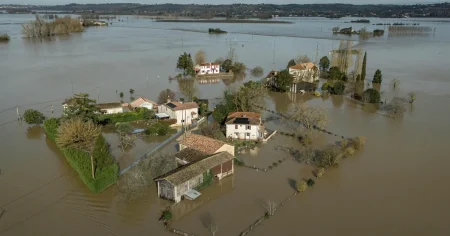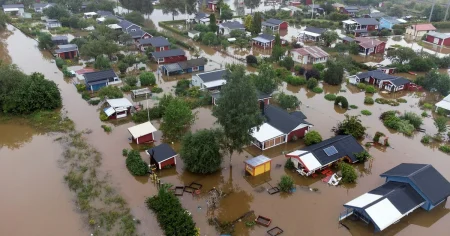Sweden’s Climate Minister, Romina Pourmokhtari, has placed her hopes on the Environmental Objectives Committee to deliver proposals that will enhance carbon sequestration in forests and strengthen Sweden’s commitments to the European Union’s climate targets. The committee, tasked with charting a path towards achieving Sweden’s environmental objectives, is currently grappling with the complex issue of balancing economic interests tied to forestry with the pressing need to mitigate climate change. A key focus of the committee’s deliberations revolves around strategies to reduce logging activities, a contentious issue with significant implications for both the forestry industry and Sweden’s carbon budget. However, insider sources have revealed that the committee’s discussions are fraught with deep-seated conflicts, potentially hindering its ability to reach a consensus on effective and politically viable solutions.
The tension within the Environmental Objectives Committee reflects the broader debate surrounding forest management in Sweden and across the globe. Forests play a crucial role in the global carbon cycle, absorbing atmospheric carbon dioxide through photosynthesis and storing it in biomass and soil. Reducing deforestation and promoting sustainable forest management are widely recognized as essential strategies for climate change mitigation. However, logging activities, while providing economic benefits and contributing to the timber industry, release stored carbon back into the atmosphere. Finding the optimal balance between utilizing forest resources and maximizing their carbon sequestration potential is a complex challenge that requires careful consideration of ecological, economic, and social factors. The conflicting perspectives within the committee highlight the difficulty of navigating this delicate balance.
The potential for increased carbon sequestration in Swedish forests holds significant promise for meeting the country’s climate goals and contributing to the EU’s overall emissions reduction targets. Sweden boasts vast forest resources, covering a significant portion of its land area. These forests represent a substantial carbon sink, with the potential to absorb and store even greater amounts of atmospheric carbon dioxide through targeted management practices. The Environmental Objectives Committee’s recommendations, if effectively implemented, could unlock this potential and contribute significantly to Sweden’s climate mitigation efforts. However, the reported internal conflicts threaten to undermine the committee’s ability to formulate a cohesive and effective strategy for achieving this vital objective.
The specific proposals under consideration by the committee, many of which center on reducing logging activities, have sparked heated debate among stakeholders. The forestry industry, a significant contributor to the Swedish economy, expresses concerns about the potential economic impacts of reduced logging. Jobs, rural livelihoods, and the supply of timber for various industries are all potentially affected by changes in forest management practices. Balancing these economic considerations with the imperative to mitigate climate change is a central challenge facing the committee. Finding solutions that address both the economic and environmental dimensions of the issue is crucial for achieving broad-based support and ensuring the successful implementation of any proposed changes.
The EU’s emissions reduction targets, to which Sweden is committed, provide an important context for the Environmental Objectives Committee’s deliberations. The EU has set ambitious goals for reducing greenhouse gas emissions, and member states are expected to contribute to these collective efforts. Sweden’s ability to enhance carbon sequestration in its forests could play a significant role in meeting these targets, potentially allowing the country to offset emissions from other sectors. However, achieving these ambitious goals requires effective and coordinated action at both the national and EU levels. The internal disagreements within the Environmental Objectives Committee raise concerns about Sweden’s ability to deliver on its commitments and contribute effectively to the EU’s overall climate action strategy.
The outcome of the Environmental Objectives Committee’s deliberations will have far-reaching consequences for Sweden’s climate policy and its contribution to the global fight against climate change. The committee’s ability to overcome its internal divisions and formulate a cohesive set of recommendations will be critical for realizing the potential of Swedish forests to contribute to climate change mitigation. The success or failure of these efforts will depend on the ability of stakeholders to find common ground and develop solutions that address both the economic and environmental dimensions of the issue. The future of Swedish forests, and their role in addressing the global climate crisis, hangs in the balance.














